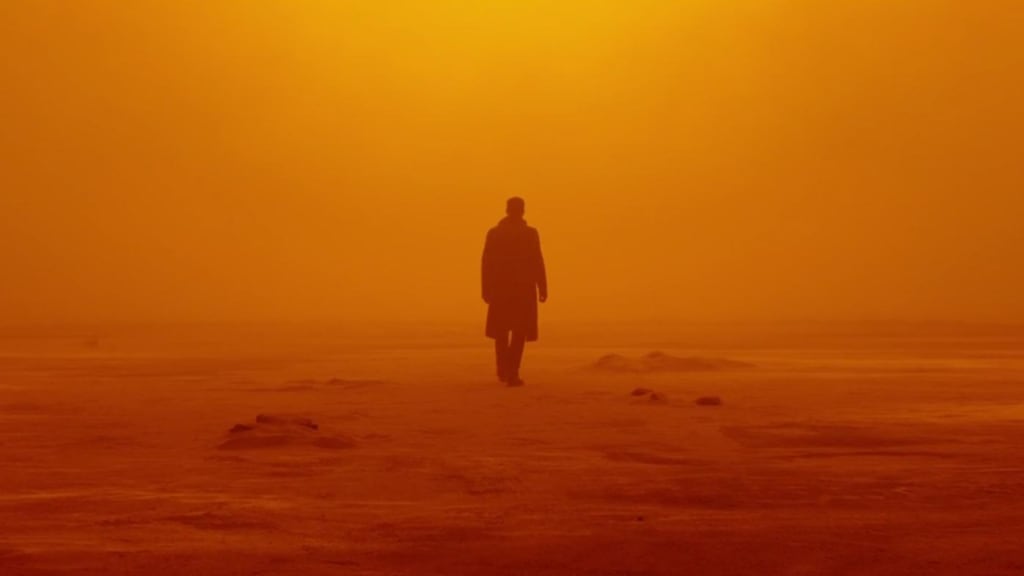'Blade Runner 2049' (2017) – Review
Another Sequel...

Blade Runner 2049 – Released 6th October 2017 – "Sci-Fi Neo-Noir"
Sequel to: Blade Runner by Ridley Scott (1984)
Based on: Do Androids Dream of Electric Sheep by Philip K. Dick
Director: Denis Villeneuve
Screenplay: Hampton Fancher/Michael Green
Editor: Joe Walker
Cinematographer: Roger Deakins
Music: Hans Zimmer/ Benjamin Wallfisch
Cast:
Ryan Gosling, "K"
Harrison Ford, "Richard Decker"
Ana de Armas, "Joi"
Sylvia Hoeks, "Luv"
Jared Leto, "Wallace"
Denis Villeneuve delivers with the help of some of Hollywood’s giants in music (Hans Zimmer, Inception, The Dark Knight), Cinematography (Roger Deakins, The Shawshank Redemption, Sicario) and Editing (Joe Walker, 12 Years A Slave, Arrival). Blade Runner 2049 is a good sequel to an all-time sci-fi classic, and although it is a beautiful looking and sounding film, it only seems to reaffirm Hollywood’s current franchise building schemes.
The general plot of the film is that a Replicant (Android) named "K" (Ryan Gosling) has to navigate his way through Los Angeles to uncover a conspiracy that could "break the world." The conspiracy consists of a Replicant becoming pregnant, something previously thought impossible. This poses a serious existential crisis for K as he has to cope with the concept of his own humanity, which he has been told does not exist as he has no soul having never. Along the way he is followed then hunted by Wallace’s (Jared Leto) aid Luv (Sylvia Hoeks) who hopes this new discovery to bolster his own companies manufacturing of Replicants. He is joined by his A.I love interest Joi (Ana de Armas) throughout his troubling adventure in L.A. The conspiracy eventually leads him to have to go and find the retired Richard Deckard (Harrison Ford) which sets the final act in motion. I won’t spoil the key plot points nor the twist so will end the general plot there.
The themes Villeneuve is trying to convey are similar to the original and even pose to dig deeper into what it means to be human. By making a Replicant be able to become pregnant, the story elevates its questioning of what humanity is. It can only be described as a 3-way system of conflict the film creates; K, once discovering this truth, starts to question himself, and sets out to save the born Replicant. He, however, is in conflict with his own superiors who he is programmed to obey, they want to destroy the born Replicant in order to save their world. Finally, Wallace seeks to understand, as he sees it, this new technology so that he can profit and exploit it. It can be argued then that Villeneuve and Fancher are trying to explain humanities essence in these three reactions to the "miracle" of birth. These can be seen as when explained, simplified aspects within all human’s, greed, ignorance, and belief. Whereas the original Blade Runner sought to understand "do androids dream?" Blade Runner 2049 wants to know what their dreams are about. For instance, K is in love with a programme called Joi who will fulfill all his desires. We as the audience believe in this relationship when really it is one android loving another, so if we can believe in their love their humanity can exist too. Other questions though about the degree to which it is real can be questioned as Joi is a "product" of the Wallace cooperation and designed to love K.
The film like its predecessor borrows heavily from the 1940s\50s Noir crime drama and this is in no way a bad thing. As it is within the Blade Runner universe the high contrasts lighting is often offset by intense fluorescent colours draping the skyline. One scene, in particular, has an orange hue to it that perfectly captures the location. This creates some beautiful imagery for which I’m sure Roger Deakins is worthy of an Oscar nod. The tone he and Villeneuve create is a symphony of colour and lights which dramatically helps with the world building. Hans Zimmer’s score is perfect for Blade Runner if not a little overwhelming at times. He took the sounds from the original, which was a softer mysterious melody of keyboard synth’s and combined with his own orchestral symphony. It brings Blade Runner up to date within its own worlds for 2049 is a world more damaged than previously, Hans Zimmer’s score then translates the feeling of a world ready to explode. The way the film is cut seems intentionally slow, one reason could be that the first 20-30 minutes of the film have to spent introducing new audiences unfamiliar with Blade Runner to the world. Besides that, the pacing established by Joe Walker drags the audience into the film as you marvel at the visual spectacle created by Villeneuve. It does not get in the way of what really stands out for the film, the visuals and score. The editing is the best kind… hidden in plain sight.
There is no point judging a film based on its box office, Blade Runner 2049 is a great film and far better than most of what is pumped out of Hollywood lately. Villeneuve delivered on a classic that will be revered for time to come… hopefully, the sequels won’t butcher it and the legacy of the original.






Comments
There are no comments for this story
Be the first to respond and start the conversation.